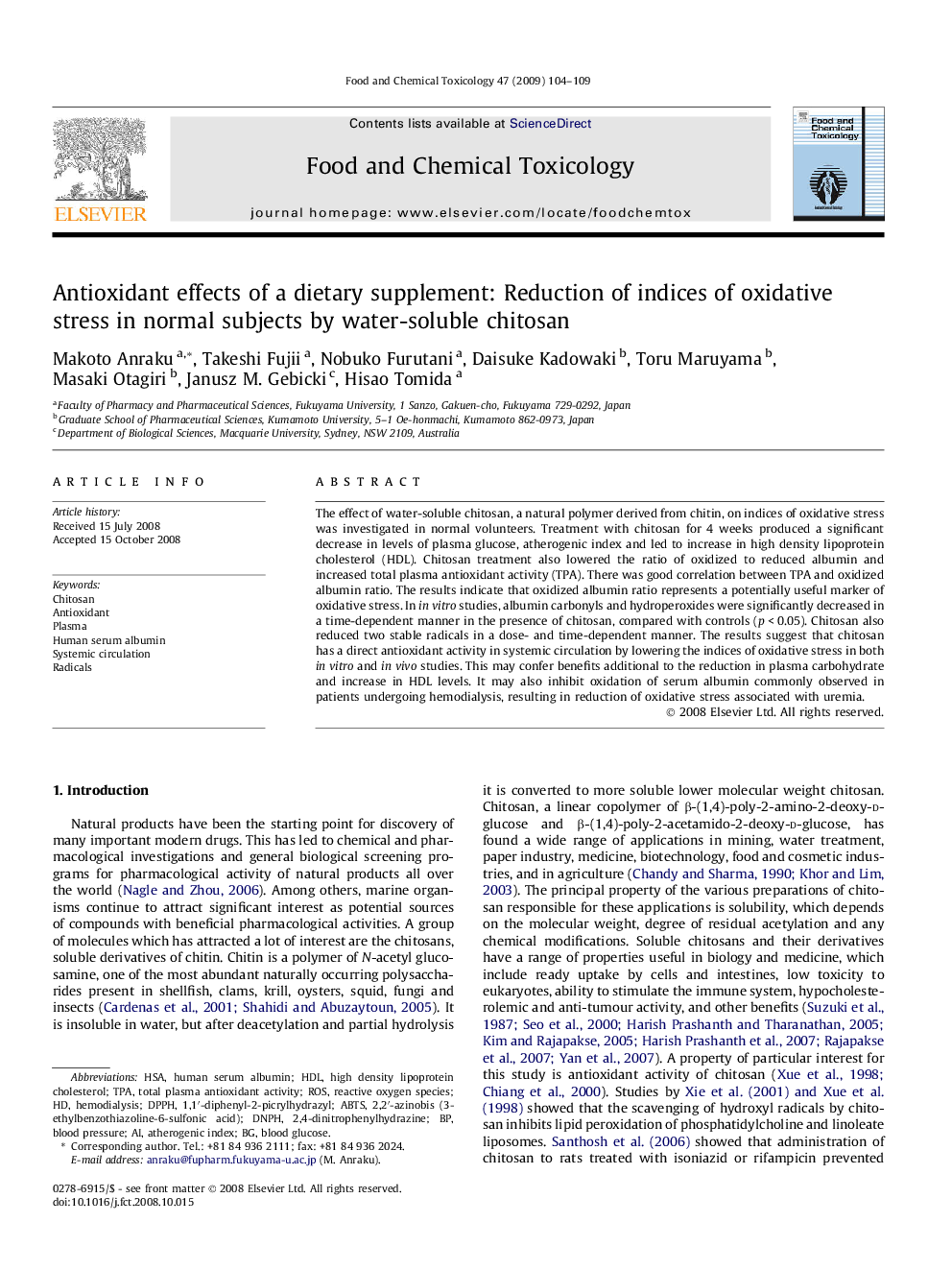| Article ID | Journal | Published Year | Pages | File Type |
|---|---|---|---|---|
| 2586824 | Food and Chemical Toxicology | 2009 | 6 Pages |
The effect of water-soluble chitosan, a natural polymer derived from chitin, on indices of oxidative stress was investigated in normal volunteers. Treatment with chitosan for 4 weeks produced a significant decrease in levels of plasma glucose, atherogenic index and led to increase in high density lipoprotein cholesterol (HDL). Chitosan treatment also lowered the ratio of oxidized to reduced albumin and increased total plasma antioxidant activity (TPA). There was good correlation between TPA and oxidized albumin ratio. The results indicate that oxidized albumin ratio represents a potentially useful marker of oxidative stress. In in vitro studies, albumin carbonyls and hydroperoxides were significantly decreased in a time-dependent manner in the presence of chitosan, compared with controls (p < 0.05). Chitosan also reduced two stable radicals in a dose- and time-dependent manner. The results suggest that chitosan has a direct antioxidant activity in systemic circulation by lowering the indices of oxidative stress in both in vitro and in vivo studies. This may confer benefits additional to the reduction in plasma carbohydrate and increase in HDL levels. It may also inhibit oxidation of serum albumin commonly observed in patients undergoing hemodialysis, resulting in reduction of oxidative stress associated with uremia.
